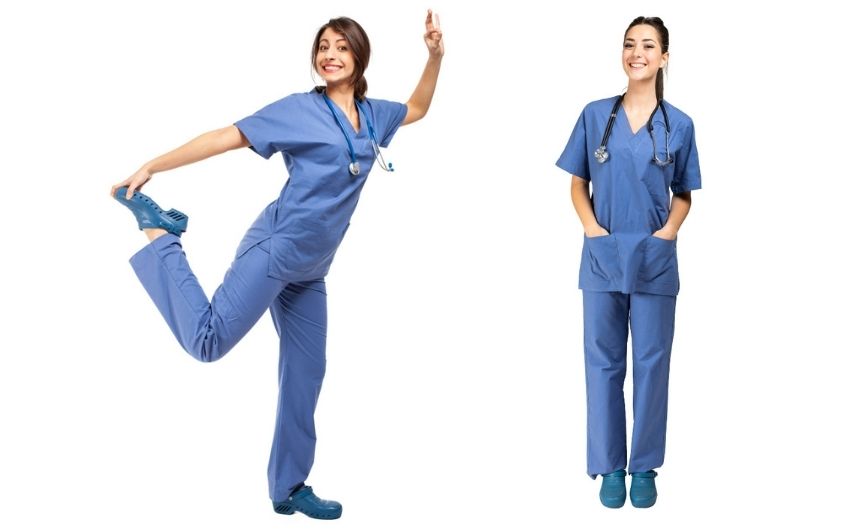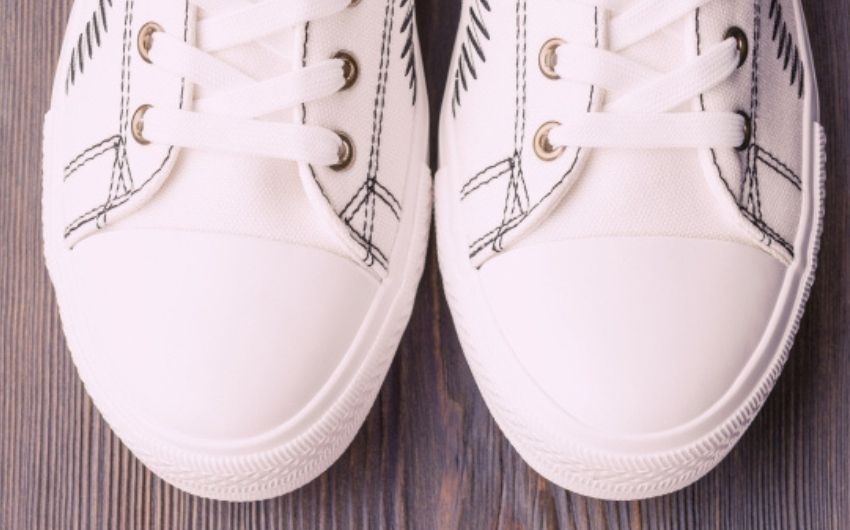When it comes to nurses, comfort doesn’t always top the list of priorities in the job. In fact, their days are often filled with discomfort. There are some reasons, that is—long-standing hours, absolutely zero time to take a break and relax, and continuous physical assertion. If you are a nurse, these might be the top complaints you have.
Despite all of this, there is one thing that can significantly reduce the stress—the type of shoes they wear. Nursing is not an aesthetic work. Therefore, looks are not necessary. Nurses everywhere have testified that one of the worst enemies in their job is impractical and burdensome shoes. You probably cannot imagine rushing patients down the ICU in heels, and it is indeed painful. So what are the primary factors that make a good nursing shoe?
Essential Features In Nurse Shoes

A nurse must always choose her shoes wisely as they can affect their entire day. Below are some features you should look for in a pair of shoes if you are a nurse:
Arch Support
What causes a lack of arch support in a shoe? An open space that is separating the inner sole from your foot. Some typical indicators of shoes that do not support your arch properly can be tiredness, discomfort, and pain by the end of the day. In a job where you have to stand for prolonged hours, this is not a great help!
As a result of some medical conditions, the shape of a foot arch can change over time. These conditions can include plantar fasciitis, supination, or pronation. When nurses work actively in medical care facilities, they spend a lot of time on their feet and neglect musculoskeletal problems that can arise from lack of arch support. The arch of the foot is responsible for absorbing the pressure and impact that comes out from walking or standing.
Lightweight Shoe
When it comes to shoes, a few ounces can make a huge difference. The weight of the shoes can determine how speedily and flexibly you will carry on the tasks. We always recommend shoes that are light in weight for nurses, paramedics, and other professionals in the medical industry to ensure that their movement is not restricted.
Durable Shoes for Safety
Nurses require shoes that are capable of providing that with a safe footing. With constant activity, nurses need footwear made with premium materials like leather or heavy-duty rubber that traction against a slippery floor.
Certain agility and surefootedness are required when you’re assisting patients or moving heavy equipment. A good pair of shoes will help distribute the weight of your lower body and save you from back injuries.
Tips When Buying Shoes As A Nurse

Here are some tips you can follow, including dos and don’ts that can help you get the right nursing shoes:
- Do not opt for shoes made of synthetic products as they can make you uncomfortable hot throughout the day.
- Maintenance and cleanliness are essential parts of a nurse’s job. Therefore, you must choose shoes that can be washed easily.
- Durability matters a lot when it comes to nurse shoes. Wear and tear are inevitable when working in a hospital, and it can lead to more discomfort.
- Arch support is a must for the health and well-being of yourself and your feet.
- Before choosing your shoes, make sure you walk around in them to ensure they aren’t too tight or too loose. A good fit makes all the difference.
- Ensure that your shoes are water-resistant and can provide you protection against potential fluid spills at the workplace.
Common Shoes Nurses Wear
Nurses commonly wear shoes that are easy to get in and out of, along with shoes that provide good traction while moving around. Durability and sturdiness are other essential factors that determine an excellent nurse shoe. Here are some standard shoes nurses wear:
Slip-on Shoes or Slippers
Slip-on shoes work well with the nursing profession as they are quick to change and easy to use. This factor comes in handy when you are in an operation theater and have to maintain sterility. Due to the protocol practiced across the world, nurses have to remove the external footwear, which means they have to change often. This is why slip-on shoes or slippers are a practical option here.
Sneakers or Tennis Shoes
Nurses are always on the go in high-stress areas like ICUs (Intensive Care Units) or ER (Emergency Room). To survive and be active in this fast-paced environment, tennis shoes can come in handy. These shoes are stable, maintain good traction, and are built for running. Another significant factor for sneakers is that they protect the feet against fluids on the ground.
Clogs
By default, clogs are the more popular type of shoes among nurses. You will know why if you have seen one. Clogs are explicitly designed for comfort, and they are not aiming to achieve a beauty standard. They are well-equipped to keep the front of your feet closed and protect you from fluid spills.
Since the back of the clog is open, they also work as slip-on shoes. However, they also come with a strap that makes them more secure than any slip-on shoe. They quickly take off pressure from pressure points and keep the feet happy and comfortable throughout the day.
Last Note
A good shoe will work wonders for a nurse. It will help her maintain good posture, keep away all the back problems, and ensure she doesn’t come back home with aching feet. Since nurses are caregivers, their comfort determines how well they will be able to assist the patients.


